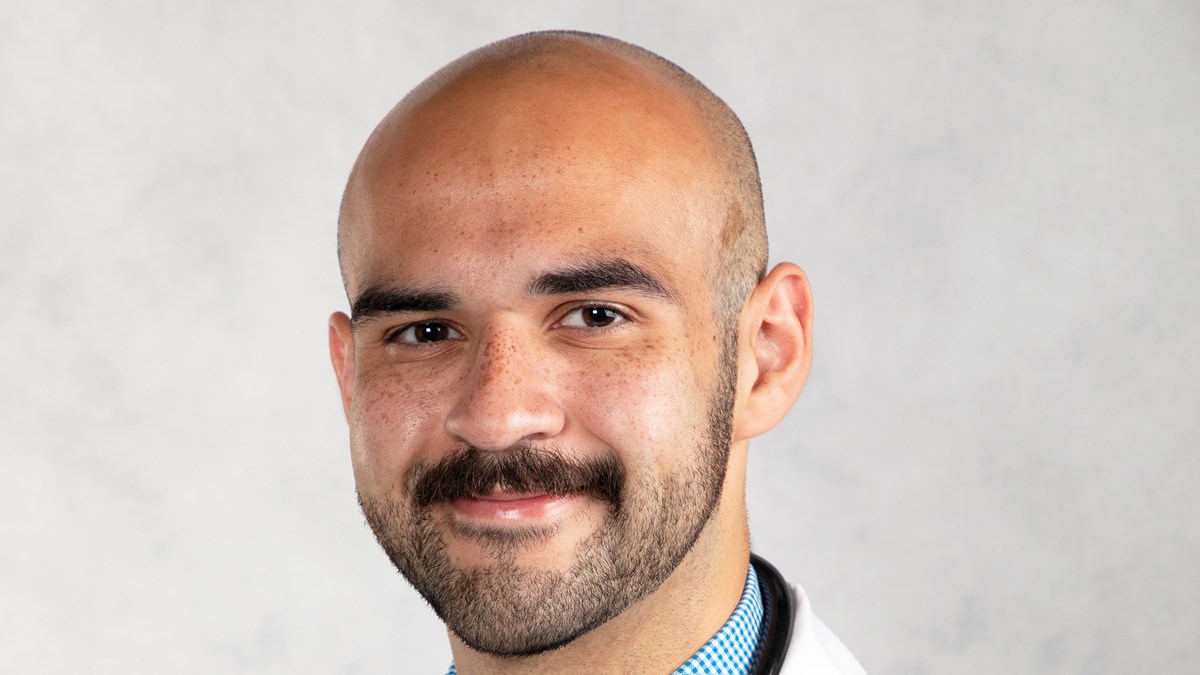Matthew Parsley

“Our curriculum incorporates how to design studies, analyze and interpret medical papers and so much more. I knew I would learn a lot in my program, but I didn’t know exactly how applicable everything I learned would be to my medical school experience.”
Tell us more about your current academic experience. How does it relate to your graduate studies at WVU? What skillsets are you utilizing from what you learned?
I am currently in my second year of the DO program at the West Virginia School of Osteopathic Medicine. Following medical school, I hope to pursue a residency in pediatrics and bring the concept of wellness, lifestyle intervention and nutrition to my work with children. Exercise physiology as a whole is a great fit for anyone who wants to pursue any facet of healthcare, but especially medical school. It combines the implementation of lifestyle intervention, nutrition and wellness, along with seeing the patient as a whole.
Why did you choose your major program in Exercise Physiology?
Since I was five-years-old, I knew that I wanted to pursue medical school, but I always wanted to forge my own path. There isn’t anything I have come across in medical school that I wasn’t previously exposed to in exercise physiology. Our curriculum incorporates how to design studies, analyze and interpret medical papers and so much more. I knew I would learn a lot in my program, but I didn’t know exactly how applicable everything I learned would be to my medical school experience. I am always our group leader in class because I am often one of the few students with previous exposure.
What are some of the most rewarding aspects of your academic experience? What excites you most about where you are?
The exercise physiology program also had a substantial effect on me personally through my own weight loss journey. It helped me to see the true power and interrelation of wellness in my own life and how it can affect people. It excites me to know that I can now use my education to make a positive difference in young peoples’ lives. Since being in medical school, I was fortunate to work with three other classmates to co-create an initiative called Fit Kids, where we teach children in the Lewisburg area about wellness, from gardening and farming to hiking and the outdoors. We recognized the need for activities that were both fun and educational for the kids and have received both local and national grants to continue the program.
Since joining the local Lewisburg community, I have also been able to get involved with Greenbrier Valley Pride and was recently elected to serve as a board member with the organization. This year, we also held our first Pride event, in Lewisburg, with more than 600 people in attendance.
What would you tell prospective students interested in pursuing a Master’s in Exercise Physiology about your experience at WVU and the School of Medicine?
My master’s opened up extra time for me to learn. I have been constantly learning through my program and simultaneously building connections. This helps you to truly know what pathway is going to be the best fit for you.
Being able to pursue my master’s opened up so many potential avenues for me. The historic mentality of going directly into medical school is shifting. Often, medical schools are now asking prospective candidates to demonstrate what else they have done and how this relates to their desire to practice medicine in addition to an undergraduate degree. Through my master’s, I was able to lead and conduct studies, go to conferences in experimental biology, network with colleagues and work in a variety of medical settings from a child development center to cardiac rehabilitation.
Have you worked with any faculty or staff members who have an effect on you while at WVU?
During my master’s, Dr. Paul Chantler and I collaborated on immunological research of responses to psychological and physiological effects on mouse models. Dr. Chantler and I found a great balance in our collaboration on our research. I really feel that our different styles and approaches to the process helped me to expand and explore my own research process and skillsets in a way that was extremely advantageous in my future medical career.
Have you received any honors or awards during your time in the School of Medicine?
I was a recipient of the Gillman Fellowship while at WVU and was able to travel to Vietnam and Cambodia as part of the experience. I learned so much about how to engage with different people and perspectives, particularly I felt inspired by the ways that we and the greater community were able to engage with helping youth. This allowed me to see parallels within my own community and fueled my desire to contribute and make an impact for youth upon my return. Despite challenges due to the pandemic, I have really hit my stride in my current program. I was recently named WVSOM’s DO Student of the Year and the West Virginia Rural Health Association’s 2021 Outstanding Rural Health Student of the Year.
Is there anything else that you would like to share with prospective students?
While my family didn’t have the opportunity to pursue higher education, they were very supportive of my decision. As a first-generation college student, I didn’t have someone telling me the steps to reach my goals, so I learned how to take my own steps and forge my own path. My background taught me the importance of being empathetic as a physician. When you come to WVU, be sure to get involved with as many academic opportunities as you can. Gaining so many experiences and becoming well-rounded were some of the best aspects of my experience.